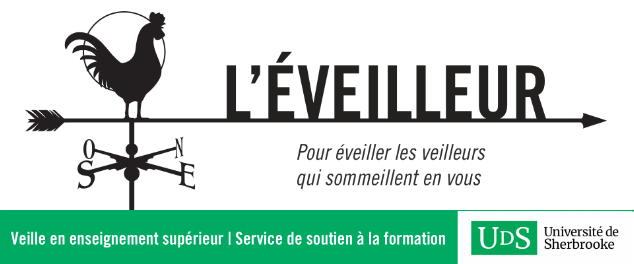Un article suggéré par mon collègue Marc Couture m’a lancé dans une investigation sur l’état de la tradition du “Faculty Club” en 2019… L’article fait état de la transformation de l’ancienne salle du Conseil d’administration du Occidental College de Los Angeles (devenue trop exiguë) en nouveau Salon des professeurs (Faculty Lounge). L’article décrit la perte progressive d’espaces de rencontres pour les professeurs dans les années 1990, jusqu’à un hiatus dans les années 2013 à 2015 où, à la suite de scandales et de conflits sur le campus, le désir d’un nouveau lieu de rassemblement pour les enseignants s’est fait plus pressant:
Somewhere along the way the grind got harder, too — the pressure to publish, family obligations, an unrelenting schedule. To attempt a balance, professors may spend less time on campus, teach only two or three days a week. Never mind adjunct faculty members. Academic life can be a series of beelines between your office and your car, says Saul Traiger, a professor of cognitive science and philosophy. “You can go for days without really seeing anybody. […] Professors are increasingly disconnected, and yearn to reconnect. (Lipka, 2019)
Mais, quelques mois après l’avènement du nouvel espace, force est de constater qu’il est assez peu fréquenté… Quelques rencontres pour discuter avec des professeurs invités ou des collègues revenus de sabbatiques. Parfois, un professeur y travaille pour s’évader de son bureau…
Cultivating intellectual life demands not just space, but time. It’s time that many people don’t have, or make. The reality of the professoriate today is not sitting around after class and waxing poetic before strolling home, where dinner is on the table. If you carve out an evening to get together with colleagues, [John] McCormack [associate professor of biology, Committee on Intellectual Community’s chair] says, you’re glad you did. But day to day there’s often a good reason not to.
Maybe a faculty lounge matters nonetheless. “People want to have one of these spaces even if we won’t use it,” says [Daniel] Fineman, the veteran English professor. People might not go, at least not very often. But they mean to. And they like to know they could. (Lipka, 2019)
Dès 2013, un article de Robin Wilson, faisait le même constat: la vie intellectuelle ne se développe plus autant sur les campus…
Like many professors, Mr. [Juan] Uriagereka is more likely to collaborate with researchers in his scholarly specialty [linguistics] from universities across the world than with people down the hall. Much of modern-day scholarly conversation takes place via e-mail, Twitter, Facebook, and Skype, shifting the center of faculty culture away from campuses and toward electronic congregations of professors. […]
…Serendipitous connections over a beer or coffee at the faculty club are a thing of the past for many. It’s hard to know exactly what is lost when such connections are missing. But some university administrators are concerned that the climate of impersonality is leading to a less vibrant campus culture, and to a sense of isolation that makes it harder to hold on to professors, many of whom feel no deep ties or loyalty to a particular place.
Nouvelle décoration, nouvelle facturation, connexion Wifi, larges moniteurs, espaces de travail confortables, produits locaux dans la préparation de menus gourmets, les faculty clubs formels et traditionnels cherchent à rajeunir leurs images pour intéresser les nouveaux professeurs… quitte à s’aliéner quelques habitués. Ces établissements se tournent de plus en plus vers les étudiants, leurs parents et les diplômés pour compléter leur clientèle (Gluckman, 2017).
Dans un texte d’opinion fort commenté paru en mars 2017, la professeure Deborah Fitzgerald du MIT déplore les “couloirs [désormais] vides” de son département et discute de les principales causes de cet exode de ses collègues:
A big reason for decreased faculty presence in their campus offices is technology. Networked computers that allow one to write anywhere also allow us to have conversations with students and colleagues that used to take place in person. Creating new course materials and ordering books is easily done online. Cloud software has made pretty much all our work processes easily done from home, a vacation cabin, a foreign conference hotel. For many scholars, this has been a very liberating occurrence, giving them wondrous flexibility. […]
…[M]ore mothers working, more fathers sharing child care, more faculty members looking after aging parents, more couples forced into a commuting relationship. And that’s all great. Yet when some academics work off campus as a way of solving a family challenge, others seem to take it as a sign that every faculty member is free to work at home.
De jeunes professeurs vont dans le même sens. Selon John P. Murry, un professeur agrégé de marketing à la University of Iowa, cette flexibilité devient même un facteur d’attractivité de la profession universitaire:
…[M]any younger faculty members, he notes, find academe attractive precisely because it doesn’t require them to be in the office from 9 to 5. “For dual-career households, it gives you the flexibility to be at home with a child during the day, to work at night or on the weekend,” he says. “We’re evaluated on our performance — our research accomplishments, our teaching scores, our service contributions.
“Nobody really cares where you work or how you do it.” [Biemiller, 2017]
Fitzgerald expose aussi les importantes conséquences des corridors vides sur la vie départementale et facultaire…
The notion that no one really needs to work on the campus, however, has significant structural consequences for departments. One faculty member working at home a few days a week is barely noticeable. Nearly all of them working at home most days is far more serious. […]
Without such interactions, however, what keeps junior faculty engaged? How do we communicate values? Or share readings, provocative conversations, and inspiration? Why should young academics try to build a professional life in a place where there is no one to talk to? Students, and especially graduate students, face similar questions. What does it mean these days to be a member of the academic community?
Et elle explore des avenues de solution: si les universités veulent une vie de campus riche, ils doivent la valoriser dans les critères de promotion… au moins autant que les publications scientifiques…
There are some ways to reverse this trend. The primary one begins with the university or college itself, which — in its tenure and promotion decisions — seems to demand ever more attention to publications and ever less to collegiality and community. We need more campus discussion of these trends and how to counter them to strengthen departmental relationships. [Fitzgerald, 2017]
Mais l’importance de lieux de rencontres ne doit pas être négligée:
“Community doesn’t just happen with a collection of people,” says Mr. [Michael M. J.] Fischer, of MIT. “You have to create it and support it and build venues for it.” For instance, he goes regularly to colloquia offered by the biology department, which he says often attract several hundred people. “Biology is the big thing at MIT these days,” he says, noting that the history-of-technology department used to offer similar programs, which eventually withered
He’s also a fan of MIT’s Stata Center, which houses a number of departments and features a lively first-floor corridor with a popular food court at one end. “The Stata Center is a place where you do run into people,” he says. The main corridor, he says, is “a kind of free-floating space, and people use that space very flexibly. They’ll just pull up some chairs and tables.” [Biemiller, 2017]
Le besoin de rencontre est toujours présent chez les jeunes professeurs, mais il peut avoir changé de “couleur”…
Young professors are not interested in long lunches where they order from a menu, says Jeffrey White, the [Ohio State University] club’s executive director. But that doesn’t mean they don’t like to socialize. They just don’t want to do it in the same ways their older colleagues did.
When Mr. White invited a group of young professors to come to the club and talk about their interests, he says, he learned they still yearn for the same deep connections that faculty clubs once fostered. But they told him they’d rather gather spontaneously at a coffee shop or for happy hour. To draw them in, Mr. White created a new dining area, where they can grab something from a buffet line and be out the door in 20 minutes. [Gluckman, 2017]
Au-delà d’une nostalgie mal placée pour une époque sans doute révolue, la question de maintenir une vie intellectuelle animée sur les campus, malgré tous les facteurs qui favorisent plutôt le repli sur soi des professeurs-chercheurs, nous semble assez fondamentale. Comme on l’a vu, c’est le sentiment d’appartenance, voire de loyauté à une institution qui s’effrite. D’un point de vue purement pédagogique, comment les bonnes pratiques peuvent-elles se transmettre si chacun quitte l’université une fois sa prestation de cours donnée? Agir comme mentor se produit aussi souvent hors de la classe…
Sources:
Biemiller, Lawrence, « Where Is Academe’s Collegial Buzz? The Locus Has Shifted », The Chronicle of Higher Education, 17 juillet 2017 [contenu réservé aux abonnés]
Our Hallways Are Too Quiet », The Chronicle of Higher Education, 6 mars 2017 [contenu réservé aux abonnés]
Gluckman, Neil, “The Faculty Club: Not Dead Yet“, The Chronicle of Higher Education, 8 août 2017 [contenu réservé aux abonnés]
Lipka, Sara, “Professors Want Intellectual Community. If Only They Had the Time.“, The Chronicle of Higher Education, 19 mars 2019 [contenu réservé aux abonnés]
Wilson, Robin, “Faculty Culture Is Fractured“, The Chronicle of Higher Education, 17, juin 2013 [contenu réservé aux abonnés]






